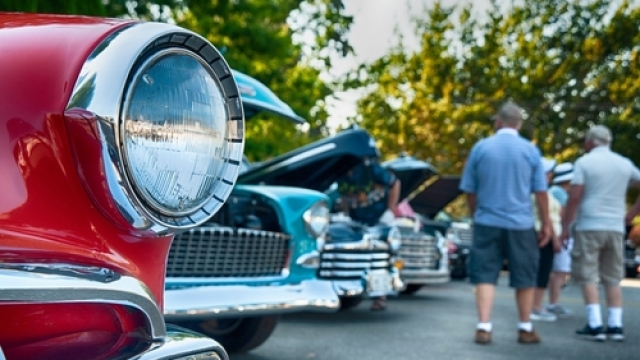Even as technology advances at a rapid pace, automakers are going through a fit of nostalgia as older-looking models from the 70's, 80's, and 90's are now hitting the market as newer cars.
In early June, Volkswagen announced it is bringing back its famous VW bus as an electric model.
The same goes for GMC's Hummer, the Ford Bronco, and Chevy Blazer.
It is a notable trend in an industry that is consistently on the forefront of innovation and progress.
"I never thought I'd see the day where the 70s cars and the 80s cars would be popular," said Doug Schuck, owner of Cars Remember When, an antique dealership located in Colorado.
"[These cars] bring me back to when I was driving these when they were newer."
Schuck says over the last few years business has been booming in his auto shop as more people purchase Pontiac GTO's, Oldsmobiles, and other cars that remind them of when "American muscle" ruled the roads. He says refurbishments have also been a hot topic of inquiry for customers looking to tune up their crown jewels.
"Most of those memories [associated with these cars] are nothing but good, right?" he said. "You might remember when you were racing your buddy. You might remember the first time you went out on a date. You might remember your first kiss. Who knows?"
Throughout 2022, the collector online auction site Bring a Trailer saw a 50% increase in year-over-year sales, according to the company. By year's end, over $1.3 billion in transactions flowed through the site, crushing the site's previous record of $859 million in 2021.
SEE MORE: Volkswagen minibus gets electric makeover with new ID. Buzz model
The sale of manual transmission cars has also been on the rise. In 2021, stick shift enthusiasts comprised only 0.9% of the U.S. auto market. By 2022, that number jumped to 1.2%, and sales figures for the first few months of this year indicate that the proportion has already hit 1.7%.
"When most of us think about the past, we have positive thoughts and the auto industry really does well to capture that," said Tyson Jominy, vice president of data and analytics for JD Power.
Jominy says the reason for the fit of nostalgia is simple: Manufacturers want to ensure their bottom line as their industry transitions into a future full of risk with electric vehicles.
"You know, as EVs come in, they're very risky propositions that require a very substantial up-front investment in a new technology," said Jominy. "It requires new [production] plants, destroying old plants to make new ones; and so you have all this risk and a great way to offset some of that risk is to apply it to a nameplate or model that people are familiar with. It helps to bring the old customer base to current levels, and where the industry is going so it's a nice blend of risk mitigation with that nostalgic feeling."
Dodge plans to take the signature roar of its muscle cars and play it through an electronic speaker when it releases its new Charger next year. Ford did the same last year when it made its F-150, the best-selling pick up in America for more than four decades, fully electric — injecting a classic feel in a market defined by relentless innovation.
Trending stories at Scrippsnews.com





